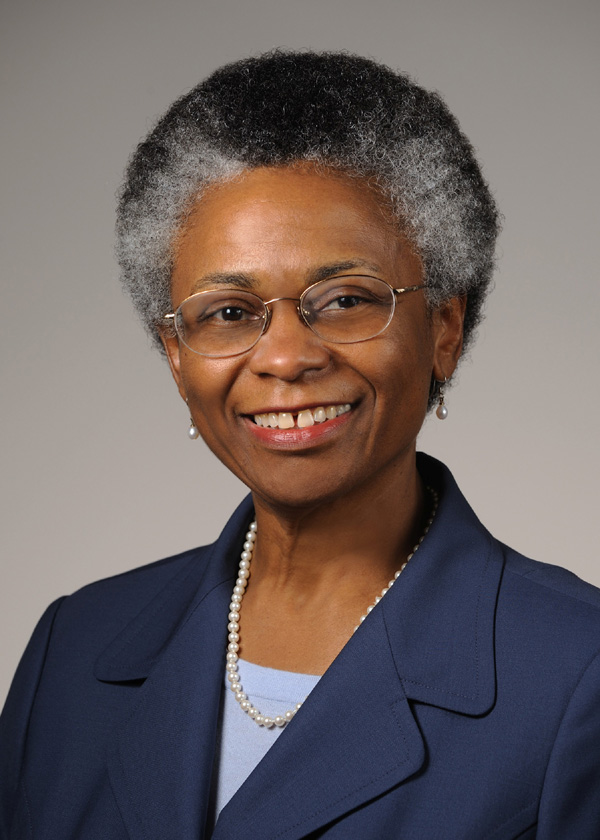For Immediate Release
Monday, October 6, 2008
Contact:
Barbara Cire
301-496-1752
nianews3@mail.nih.gov
Marie Bernard of University of Oklahoma Joins NIA on October 12
 |
|
Click image for larger version |
Marie A. Bernard, M.D., a noted geriatrician and educator from the University of Oklahoma, has been named deputy director of the National Institute on Aging (NIA), part of the National Institutes of Health (NIH), effective Oct. 12, 2008. Bernard brings exceptional skills and training as a physician, educator, administrator and investigator to the position at NIA, where she will take a major leadership role in directing the nation’s research program on aging and on age-related cognitive change.
The appointment was announced by NIA Director Richard J. Hodes, M.D. “Throughout her career, Dr. Bernard has sought to support and improve the evidence base which forms the foundation for geriatrics and the care of older people,” Hodes said. “I look forward to bringing her expertise and energy to the NIA, as we continue our efforts to address the needs of the aging population.”
Bernard comes to NIA with a broad background in geriatrics and research. She currently serves as the Donald W. Reynolds Chair in Geriatric Medicine and professor and chairman of the Donald W. Reynolds Department of Geriatric Medicine at the University of Oklahoma College of Medicine. She also holds an appointment as the associate chief of staff for Geriatrics and Extended Care at the Oklahoma City Veterans Affairs Medical Center. She is board-certified in internal medicine and geriatric medicine.
She recently served as president of the Association for Gerontology in Higher Education and as president and chair of the board of the Association of Directors of Geriatric Academic Programs. Bernard also has participated in a wide range of committees and activities, from journal editorship to board service in a number of professional medical and aging organizations.
Bernard’s own research interests include nutrition and function in aging populations, with particular emphasis on ethnic minorities. She has written numerous journal and chapter articles on geriatric care, nutrition, medication issues and health problems among minorities.
As a member of the NIA’s National Advisory Council on Aging from 2002–2005, Bernard became directly familiar with the Institute’s research and grant process from an administrative point of view. “I have been impressed with the work of the NIH, and the NIA in particular, since I was a house staff member at Temple University Hospital,” she commented. “The work that comes from the Institute serves as the basis of much of what we do in geriatric medicine.”
She added, “It is a great privilege for me to join the NIA team and help in developing future directions for that research. There is quite a bit yet to do, particularly as we face the silver tsunami of baby boomers that will start turning 65 in 2011. There will be particular challenges, since there will be even greater diversity in this population as a result of increased numbers of minority and ethnic elders.”
A cum laude graduate of Bryn Mawr College with honors in chemistry, Bernard received her medical degree from the University of Pennsylvania. She trained in internal medicine at Temple University Hospital in Philadelphia, where she also served as chief resident. She received additional training through the American Association of Medical Colleges Health Services Research Institute, the Geriatric Education Center of Pennsylvania and the Wharton School Executive Development program.
The NIA leads the federal effort supporting and conducting research on aging and the medical, social and behavioral issues of older people. For more information on research and aging, go to www.nia.nih.gov.
The NIH—the nation's medical research agency—includes 27 institutes and centers and is a component of the U. S. Department of Health and Human Services. It is the primary federal agency for conducting and supporting basic, clinical and translational medical research, and it investigates the causes, treatments, and cures for both common and rare diseases. For more information about NIH and its programs, visit www.nih.gov.
###
